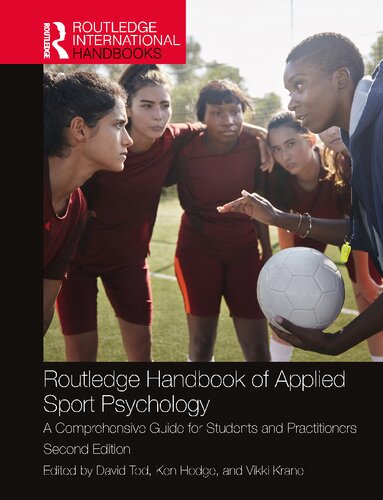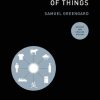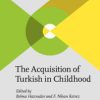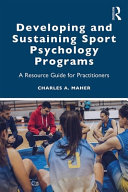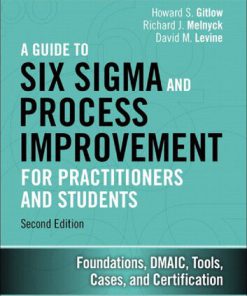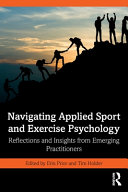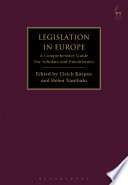Routledge Handbook of Applied Sport Psychology: A Comprehensive Guide for Students and Practitioners 2nd Edition by David Tod 9781000884043 100088404X
$50.00 Original price was: $50.00.$25.00Current price is: $25.00.
Routledge Handbook of Applied Sport Psychology: A Comprehensive Guide for Students and Practitioners 2nd Edition David Tod – Ebook Instant Download/Delivery ISBN(s): 9781003173588, 9781000884029, 9781000884043, 9781032002972, 1003173586, 9781000884043, 100088404X
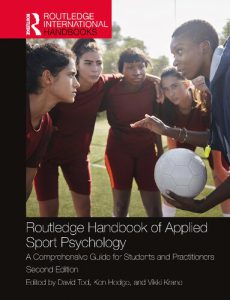
Product details:
- ISBN 10: 100088404X
- ISBN 13: 9781000884043
- Author: David Tod
Applied sport psychology knowledge has advanced rapidly in recent years. Traditionally, literature focused primarily on a narrow range of topics associated with performance enhancement, giving rise to a model of helping labelled psychological skills training. Although the psychological skills training model has considerable value, the literature has broadened to address a greater diversity of athlete and team issues; a greater range of methods; and a greater recognition of the knowledge, skills, and attributes practitioners need to help clients. The first edition of the Routledge Handbook of Applied Sport Psychology was seminal work, bringing together the full range of knowledge and skills sport psychology practitioners needed to help clients. The second edition continues that vision and draws on the full range of related disciplines, including sport and exercise psychology, clinical psychology, and counselling psychology. This comprehensive range of topics provides professionals what they need to build strong relationships with athletes and enhance clients’ performance, mental health, well-being, happiness, and meaning in life. This new volume is the guide to the theory and practice of applied sport psychology. Adopting a holistic definition of the role of the sport psychology practitioner, it introduces the most effective tools and skills that sport psychology practitioners need to help their clients and explains how effective counselling, assessment, and therapeutic models add necessary dimensions to professional practice. This book is divided into seven thematic sections, addressing: Counselling Assessment Theoretical and therapeutic models Psychosocial issues presenting in individual athletes Psychosocial issues presenting in teams Inclusion in sport psychology Mental skills interventions
Table contents:
Section I Counselling
1 Therapeutic Relationships in Applied Sport Psychology
2 Attending and Listening
3 Training and Professional Development
4 Challenging and Confronting
5 Case Notes
6 Ethics in Sport and Performance Psychology
7 Ending the Story
8 Maltreatment and Mental Health
9 Practitioner Characteristics, Peer Consultation, and Self-Care
Section II Assessment
10 Client Intakes in Applied Sport Psychology
11 Individual and Group Observations
12 Psychological Assessment: Projective Techniques
13 Psychological Assessment: Objective Self-Report
14 Performance Profiling
Section III Theoretical and Therapeutic Models
15 Brief and Single-Session Therapy
16 Person-Centered Therapy
17 Cognitive Behavioral Therapy
18 Positive Psychology
19 Existential Approaches
20 Psychodynamic Models
21 Teaching Life Skills in Youth Sport
22 Family Systems Intervention in Sport
23 Mindfulness Interventions in Sport
24 An Eastern Philosophical Approach
Section IV Psychological Issues Presenting in Athletes
25 Referring Clients to Other Professionals
26 Drug Use and Abuse in Sport
27 Eating Disorders in Competitive Athletes
28 Adherence to Sport Injury Rehabilitation
29 Career Transitions in Sport
30 Depression
31 Anxiety
32 Sleep
33 Athletic Identity
34 Overtraining
35 Sexual Misconduct in Sport
36 Applying Self-Compassion in Sport
37 Helping Athletes Cope with Developmental Crises
Section V Psychological Issues Presenting in Teams
38 Constructive Communication in Sport
39 The Importance of ‘We’ and ‘Us’ in Team Sport: Developing a Shared Social Identity
40 Understanding and Managing Conflict in Sport
41 Sport-Related Bullying and Hazing
42 Death of a Teammate
43 Leadership
Section VI Inclusion in Sport Psychology
44 Children
45 Masters Athletes
46 Professional Athletes
47 Sport Psychology at the Olympics
48 Inclusive Excellence: Embracing Diverse Sexual and Gender Identities in Sport
49 Rural Clients
50 Athletes with Physical and Sensory Disabilities
51 Athletes with Intellectual Impairment
52 Athletes with Sensory Disabilities
53 Culturally Competent Practitioners
54 Working with Non-Sporting Populations
Section VII Mental Skills
55 Arousal Management
56 Imagery
57 Motivation and Goal Setting
58 Attention in Sport
59 Self-Talk
60 Confidence
61 Self-Regulation
62 Pre-Performance Routines
63 Psychological Characteristics of Optimal Performance
People also search:
routledge handbook of sport communication
routledge handbook of sport gender and sexuality
routledge handbook of sport and the environment
applied sport psychology pdf
handbook of sport psychology
You may also like…
Uncategorized
The Routledge Handbook of Clinical Sport Psychology 1st Edition Donald R. Marks (Editor)
Uncategorized
Medicine - Therapy
Uncategorized
Business & Economics - Project Management
Politics & Philosophy - Social Sciences
Hypnosis A Guide for Patients and Practitioners 1st Edition by David Waxman 9781317661382 1317661389
Relationships & Lifestyle - Exercise & Fitness
Psychology - Developmental Psychology
Jurisprudence & Law - Civil Rights Law
Legislation in Europe A Comprehensive Guide for Scholars and Practitioners 1st Edition Ulrich Karpen

